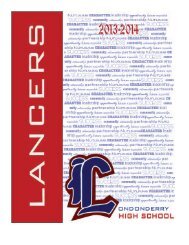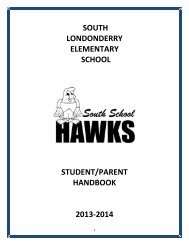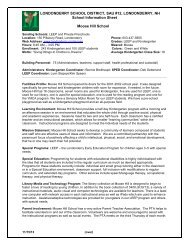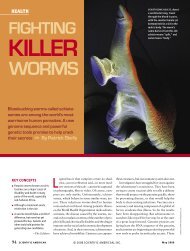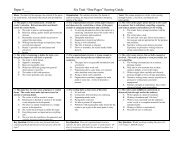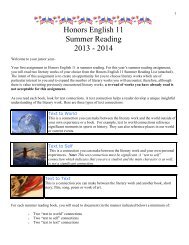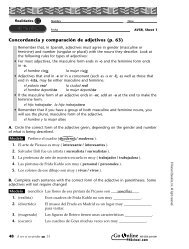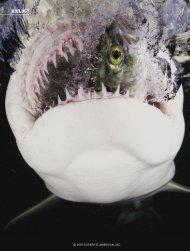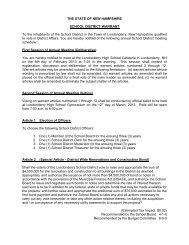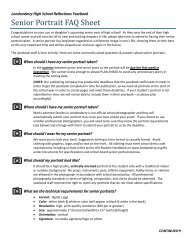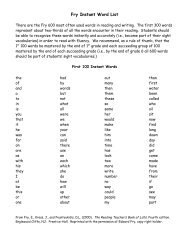eNvIRoNmeNtal sCIeNCe - College Board
eNvIRoNmeNtal sCIeNCe - College Board
eNvIRoNmeNtal sCIeNCe - College Board
- No tags were found...
You also want an ePaper? Increase the reach of your titles
YUMPU automatically turns print PDFs into web optimized ePapers that Google loves.
Laboratory and field investigation activities in the course should be diverse. Asexamples, students can acquire skills in specific techniques and procedures (such ascollecting and analyzing water samples), conduct a long-term study of some localsystem or environmental problem (such as the pollution of a nearby stream), analyze areal data set (such as mean global temperatures over the past 100 years), and visit alocal public facility (such as a water-treatment plant).Although there is a great diversity in the laboratory and field activities that wouldbe appropriate for the course, activities should:• always be linked to a major concept in science and to one or more areas of thecourse outline• allow students to have direct experience with an organism or system in theenvironment• involve observation of phenomena or systems, the collection and analysis of dataand/or other information, and the communication of observations and/or resultsThe relative magnitudes of these elements may vary from activity to activity. As awhole, the course’s laboratory and field investigation component should encompassall of the elements.The laboratory and field investigation component of the AP Environmental Sciencecourse should challenge the students’ abilities to:• critically observe environmental systems• develop and conduct well-designed experiments• utilize appropriate techniques and instrumentation• analyze and interpret data, including appropriate statistical and graphicalpresentations• think analytically and apply concepts to the solution of environ mental problems• make conclusions and evaluate their quality and validity• propose further questions for study• communicate accurately and meaningfully about observations and conclusionsIt is expected that students will perform as many labs/field investigations as possible;these investigations should fulfill the criteria outlined above. There are no specificAP Environmental Science classroom labs or field investigations required for thecourse; thus, teachers have greater flexibility when it comes to the types of labs, fieldinvestigations, and field trips that are undertaken in their courses. Depending onlocation, students could perform water tests on a freshwater pond, a river, or anestuary/marine environment. Every teacher should provide students with opportunitiesto perform experiments and analyses involving the study of air, water, and soil qualitiesas an essential core for the lab/field investigation activities.The AP Environmental Science Teacher’s Guide provides many resources for lab/field investigation activities from both college and high school AP teachers. Thispublication is available in the <strong>College</strong> <strong>Board</strong> Store at AP Central (store.collegeboard.com). AP Central and the En vi ron mental Literacy Council (enviroliteracy.org) also10© 2010 The <strong>College</strong> <strong>Board</strong>. Visit the <strong>College</strong> <strong>Board</strong> on the Web: www.collegeboard.com.



